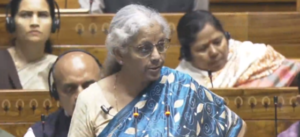To,
Members of the Executive Board of the International Monetary Fund
The IMF programme in Sri Lanka is devastating the common people of Sri Lanka, especially the most vulnerable and marginalised among them. Working people began to feel the brunt of the IMF’s Extended Fund Facility agreement with the illegitimate Government of Sri Lanka when the regime of unelected President Ranil Wickremesinghe commenced radically reforming economic and social policies in Sri Lanka, particularly energy, and social security, to qualify for new loans from the IMF and World Bank. Dismantling social security policies has gained speed with the proposal to subject the Employees Provident Fund (EPF) and employees Trust Fund (ETF), the only savings of the working people in Sri Lanka, to domestic debt restructuring. Whereas the immediate priority for debt sustainability is to write down
Sri Lanka’s external debt, Sri Lanka’s Finance Minister and the Central Bank of Sri Lanka are engaged in domestic debt restructuring to convince foreign private creditors that they are being equally treated with domestic creditors. The IMF and the World Bank have sanctioned this attack on the social security of Sri Lankan working people who are still reeling from the devastating socio-economic impact of the global Covid-19 crisis.
Abiding by the recommendations outlined in the IMF’s Staff Report, the Government of Sri Lanka increased electricity tariffs by 165% between June 2022 and February 2023. The Government reasoned these reforms, as mandated by the IMF, to achieve market pricing of the energy sector in Sri Lanka, reduce the debt of the Ceylon Electricity Board, and prepare the way for the entry of private sector players. In addition to lowering the direct income tax threshold to rob lower middle-class households of more of their monthly pay packet, regressive indirect taxes (VAT)almost doubled to 15% between June and September 2022. As a result, the poorer sections of the population shoulder the burden of taxation today. Food inflation shot up to almost 95% in September 2022. With headline inflation at 57% at the end of last year, real wages have fallen by nearly 50%. The World Bank estimates that 500,000 jobs have been lost as of 2022. Against this backdrop, the Government has replaced the Samurdhi social protection scheme with Aswasuma, a new cash transfer scheme to reduce the number of people eligible for public assistance.
In this context of heightened precarity and rising unemployment, a government too scared to hold free and fair elections is embarking on domestic debt restructuring (DDR). The Government has decided that the burden of reducing GDP’s debt-serving requirement by 0.5% should be borne by the superannuation funds, including the Employees Provident Fund (EPF) and the Employees Trust Fund (ETF), which is the only savings available to a majority of working people. We want to highlight that many contributors to the EPF and ETF earn wages below even the lowered taxable income threshold, yet their pension funds pay the highest corporate taxes in Sri Lanka. Subjecting their pension funds to DDR will diminish the returns to wage-earners and deplete the fund to half its current value. Being witnesses to the innumerable disasters that IMF and World Bank reforms have had on the working people in Sri Lanka, we urge attention to the catastrophic impact that DDR would have on the retirement benefits and living standards of low-wage-earning working people.
Similar to the previous instances of reforms, the Government claims that DDR is a precondition to external debt restructuring, particularly with private creditors holding the lion’s share of Sri Lanka’s foreign debt. The Government states that the private creditors demanded equal treatment if they were to take a 30% haircut. Once again, we note the obvious to the arbiters of the global financial and economic system. The dollar debt is not comparable to the rupee debt. Low-income earners’ pension funds are not comparable to the biggest speculators in the capital markets. Dollar debt is supposed to have higher yields and, therefore, higher risks. The rupee debt has a lower yield, so the risk is supposed to be lower. However, the international private bondholders backed by the IMF and the World Bank have conveniently passed the risks of their odious debt to the Sri Lankan people while keeping the gains to themselves.
Even though the people of Sri Lanka are protesting against unfair reforms, including the depletion of pension funds, the IMF has chosen to ignore them and claim ‘people’s buy-in’ of the economic reform package. IMF-backed reforms have disintegrated Sri Lankan society. Malnutrition has increased. The impact these years will have on the health of our children is unimaginable. Houses do not have electricity or running water. School dropouts have increased. The streets are overflowing with homeless people. Drug usage has increased. The mental health crisis is reaching a tipping point. There is a mass exodus of skilled people from Sri Lanka because Sri Lanka is no longer a country where people can scrape even a bare minimum living.
Your debt restructuring program is crippling working people in Sri Lanka who run our economy and create value in our society. The economic reforms you have imposed on us, without reflecting on the negative consequences of the previous reforms enacted over 16 IMF interventions, are crushing our economy. Denied of skilled working people, our biggest strength, you are simply nurturing a financial system that keeps ensnaring more countries like Sri Lanka and more people like the masses of Sri Lanka.
We are outraged about the economic and social crimes the Sri Lankan government and international creditors are committing against our country’s working people and poor. You are aiding and abetting these crimes. Therefore, we now hold you responsible for the calamity you have caused us.
Letter by:
(Courtesy: The Committee for the Abolition of Illegitimate Debt (CADTM), an international network of activists founded on 15 March 1990 in Belgium that campaigns for the cancellation of debts in developing countries and for “the creation of a world respectful of people’s fundamental rights, needs and liberties”.)




